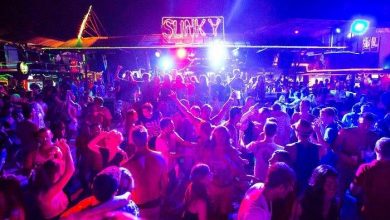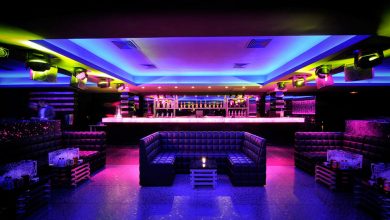Exploring the Psychology Behind Why People Go to Nightclubs

Nightclubs have long been a staple of social life in urban environments. For decades, these vibrant spaces have attracted individuals seeking entertainment, social interaction, and a break from the monotony of daily life. While the motivations behind attending nightclubs are multifaceted, they can largely be understood through the lens of psychology. From the allure of music to the desire for social connection, the reasons people flock to nightclubs can reveal much about human nature and our social needs. In this exploration, we will unpack the psychological drivers that make nightclubs such a popular destination.
1. The Desire for Social Connection
One of the most fundamental reasons people go to nightclubs is the desire for social connection. Humans are inherently social beings, and nightclubs provide a space where people can meet new individuals or bond with existing friends. For many, these venues represent an opportunity to interact with others in a more relaxed and informal setting than traditional social spaces, like offices or schools.
The communal aspect of nightclubs, from shared dance floors to group tables, fosters an environment where people can feel a sense of belonging. This is especially significant in a world where digital communication often replaces face-to-face interaction. In a nightclub, the chance to connect with others in person can be a powerful motivator.
Furthermore, for those looking to form romantic connections or even casual encounters, nightclubs offer a venue that encourages meeting potential partners in a social, yet low-pressure, atmosphere. The physical proximity, combined with the freedom to engage in conversation without the barriers that often exist in other social settings, enhances the likelihood of meaningful interactions.
2. The Escape from Daily Routine
Another compelling reason why people visit nightclubs is the need for escape. Life, especially in a fast-paced world, can be stressful, and many individuals seek out nightclubs as a form of relief from the pressures of daily routines. Whether it’s work stress, personal struggles, or the demands of everyday life, the nightclub offers a temporary respite where people can immerse themselves in music, dance, and a carefree atmosphere.
The idea of escaping from one’s regular life is deeply ingrained in human psychology. It provides an opportunity for individuals to shed the responsibilities and roles they often carry. In the dark, pulsating environment of a nightclub, one can become part of a collective experience, leaving behind the constraints of personal identity and social roles. This psychological freedom is part of the reason why nightclubs are often associated with uninhibited behavior and the expression of one’s true self.
3. The Influence of Music and Rhythm
Music plays a central role in the nightclub experience, and its influence on the human psyche is profound. The rhythmic beats, bass-heavy tracks, and infectious melodies trigger a range of psychological responses that make people feel energized and alive. Research has shown that music can elicit emotional responses, enhance mood, and even alter the perception of time.
In a nightclub setting, music serves not only as entertainment but also as a powerful force for social cohesion. The shared experience of dancing to a beat or losing oneself in a song creates a sense of unity among individuals, allowing them to feel part of something larger than themselves. The tempo and volume of the music also encourage physical movement, which, in turn, releases endorphins and other chemicals that boost feelings of happiness and pleasure.
This connection between music and movement is particularly compelling in nightclubs, where the act of dancing often serves as an expression of freedom. For many, dancing is a form of self-expression, allowing individuals to feel more in tune with their body and emotions. The nightclub becomes not only a space for fun but also a sanctuary where individuals can freely express their emotional and physical selves.
4. The Thrill of Novelty and Sensory Stimulation
Nightclubs provide an environment rich in sensory stimulation, which is another psychological pull. The flashing lights, intricate decor, and multi-sensory experiences are designed to captivate the senses. For individuals, this sensory overload can be an exciting and even intoxicating experience, particularly for those who thrive on novelty and stimulation.
Psychologically, humans are drawn to novel experiences, and nightclubs provide a constant influx of new and stimulating stimuli. Whether it’s the ever-changing light patterns, the surprise of unexpected performances, or the opportunity to meet new people, the club offers an atmosphere where individuals can experience the thrill of the unknown. This appeal to novelty is rooted in human psychology, as our brains are wired to seek out new experiences that offer the potential for excitement and reward.
In addition, the atmosphere of unpredictability in nightclubs contributes to the excitement. People do not always know what the night will bring, and this uncertainty fosters a sense of adventure. It is this mixture of sensory stimulation and unpredictability that gives nightclubs their unique appeal.
5. The Need for Identity and Belonging
Nightclubs also offer a venue for individuals to explore and express their identities. Whether through clothing, dance styles, or even the people they associate with, nightclubs allow people to express who they are or who they wish to be. This aspect of identity exploration is particularly pronounced in specific subcultures, such as the LGBTQ+ community, where nightclubs have historically served as spaces for both self-expression and solidarity.
Moreover, the sense of belonging that comes from being part of a nightclub community can be profound. For some, the nightclub environment fosters a sense of inclusion and acceptance, particularly in environments where others share similar interests, tastes in music, or even life philosophies. This feeling of being accepted for who one is – whether it’s through dance, fashion, or interaction – plays into a deep psychological need for connection and validation.
6. The Psychological Effects of Alcohol and Drugs
Another factor that influences why people go to nightclubs is the consumption of alcohol and, in some cases, other substances. Alcohol lowers inhibitions and can make individuals feel more relaxed, confident, and sociable. For many, the nightclub provides an environment where drinking is socially acceptable and part of the experience. This creates a psychological feedback loop: people drink to feel more comfortable, and in turn, the environment of the club further enhances this sense of ease.
In some cases, other substances may be involved, which can amplify feelings of euphoria or alter perceptions, heightening the enjoyment of the nightclub experience. The effect of these substances, combined with the social and sensory aspects of the club, can contribute to a psychological sense of liberation and abandon. However, it is essential to note that these substances can also lead to risks, and their role in the nightclub experience is a complex psychological phenomenon.
7. The Allure of Exclusivity and Prestige
Finally, for some individuals, the appeal of nightclubs lies in their exclusivity. Many nightclubs are perceived as prestigious venues, where being seen or gaining access to VIP areas can convey a sense of status. The psychological desire for social validation and recognition plays a significant role in this dynamic. For those seeking to elevate their social standing or connect with influential people, nightclubs can serve as a stage for social performance.
The allure of exclusivity is tied to deeper psychological needs for self-esteem and belonging to elite or desirable groups. In these spaces, individuals may feel a temporary sense of heightened importance, further reinforcing the psychological appeal of nightclubs.
8. Conclusion: Nightclubs as a Mirror of Human Psychology
The reasons people go to nightclubs are as varied as the individuals themselves, but they all stem from fundamental psychological needs: social connection, escape, sensory stimulation, self-expression, and even the desire for status. As complex and multifaceted as these motivations may be, nightclubs offer a unique space where these needs can be fulfilled in a vibrant, communal environment. The allure of nightclubs lies not just in the music or the lights but in the way they tap into the core of human psychology, offering an experience that is both personal and collective, thrilling and meaningful.






